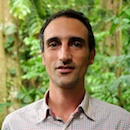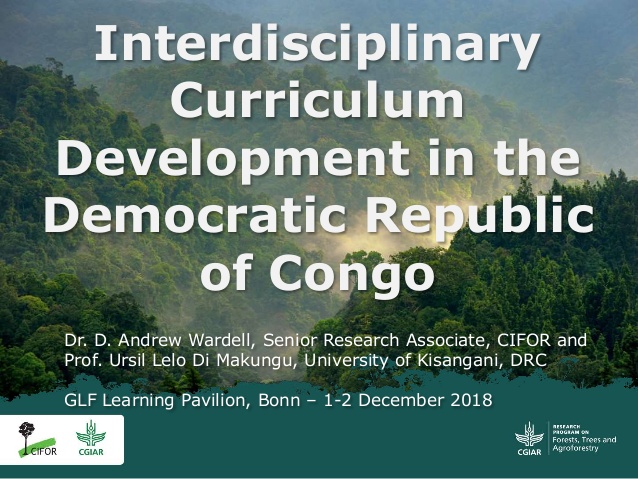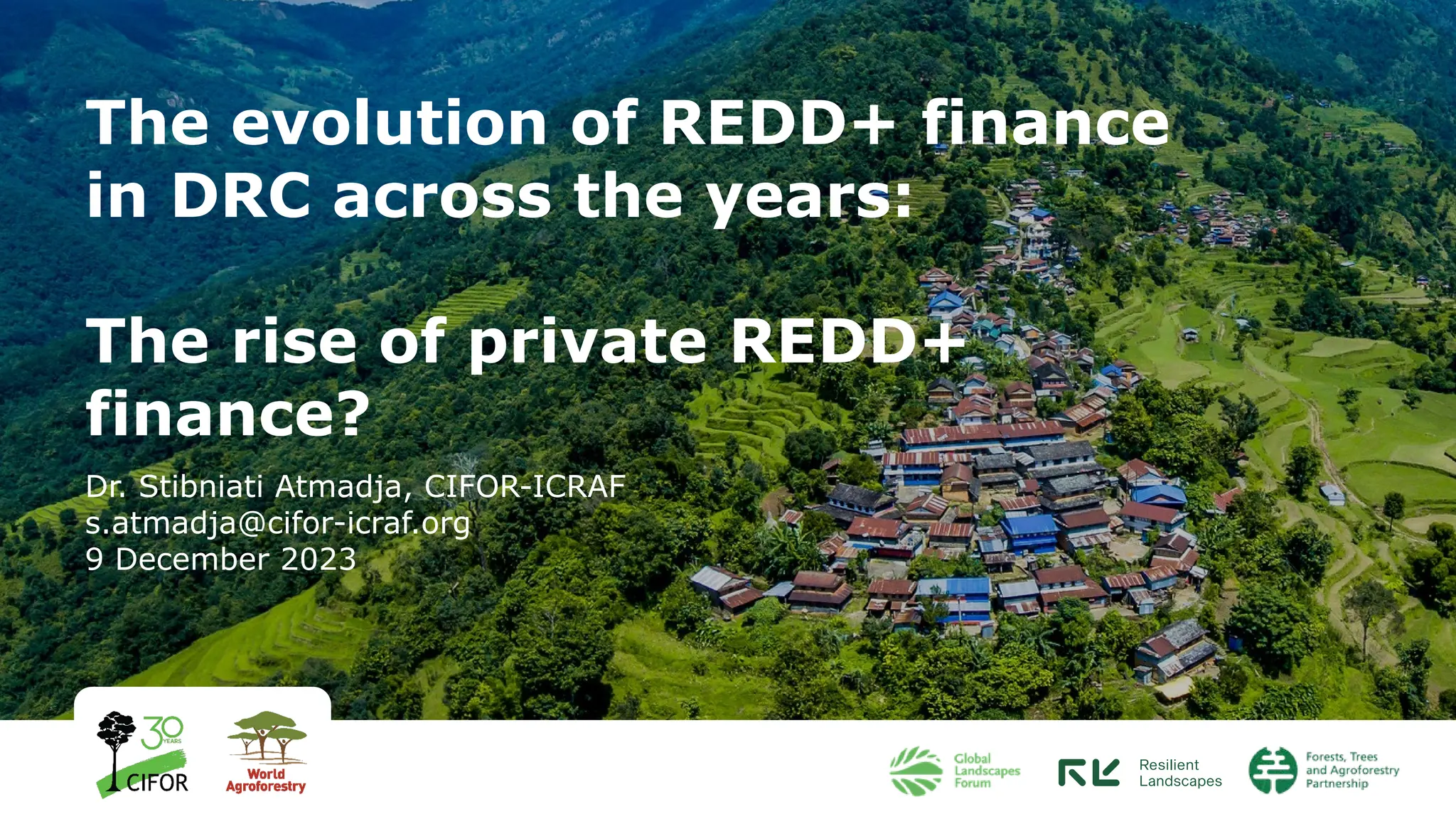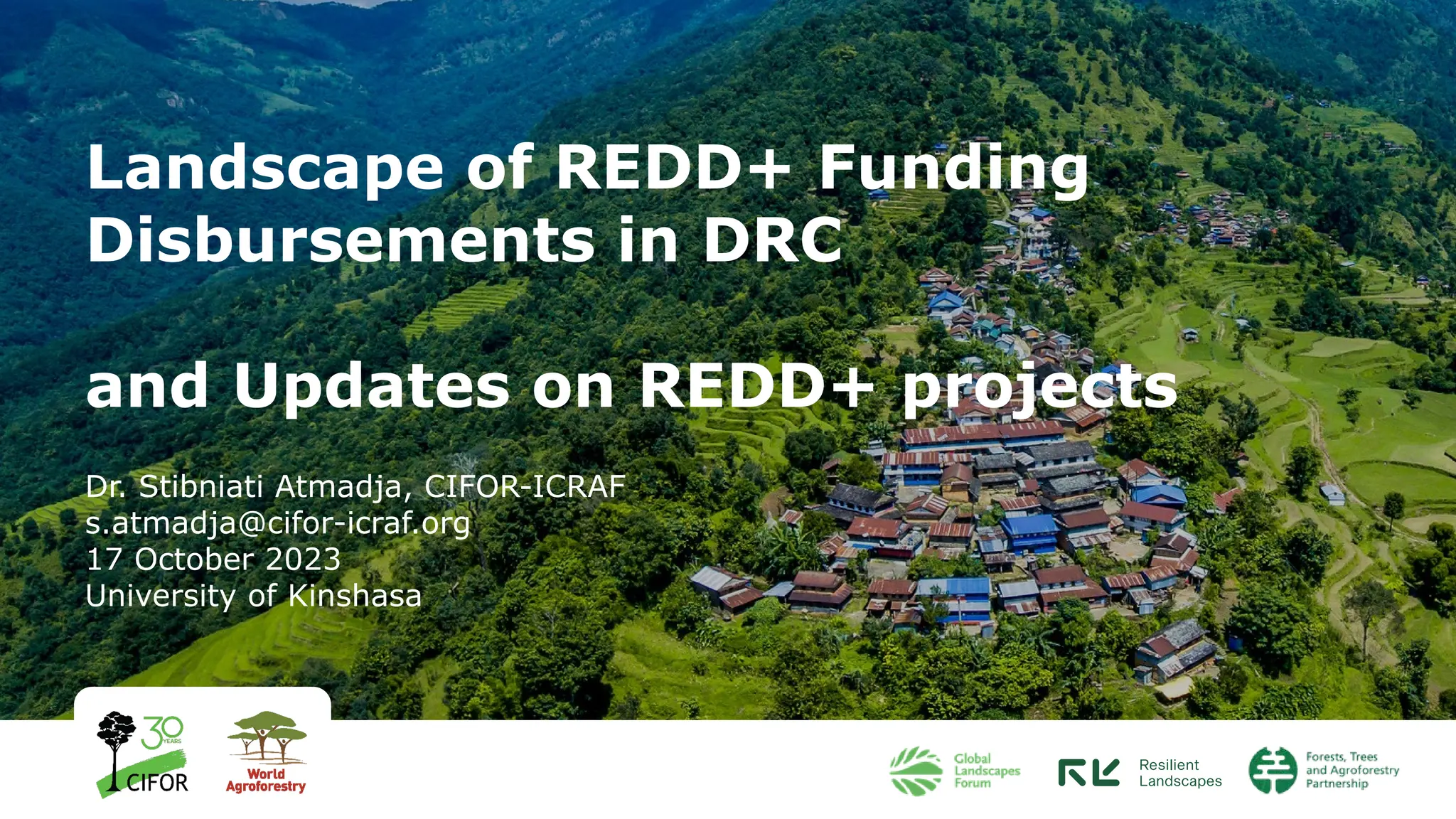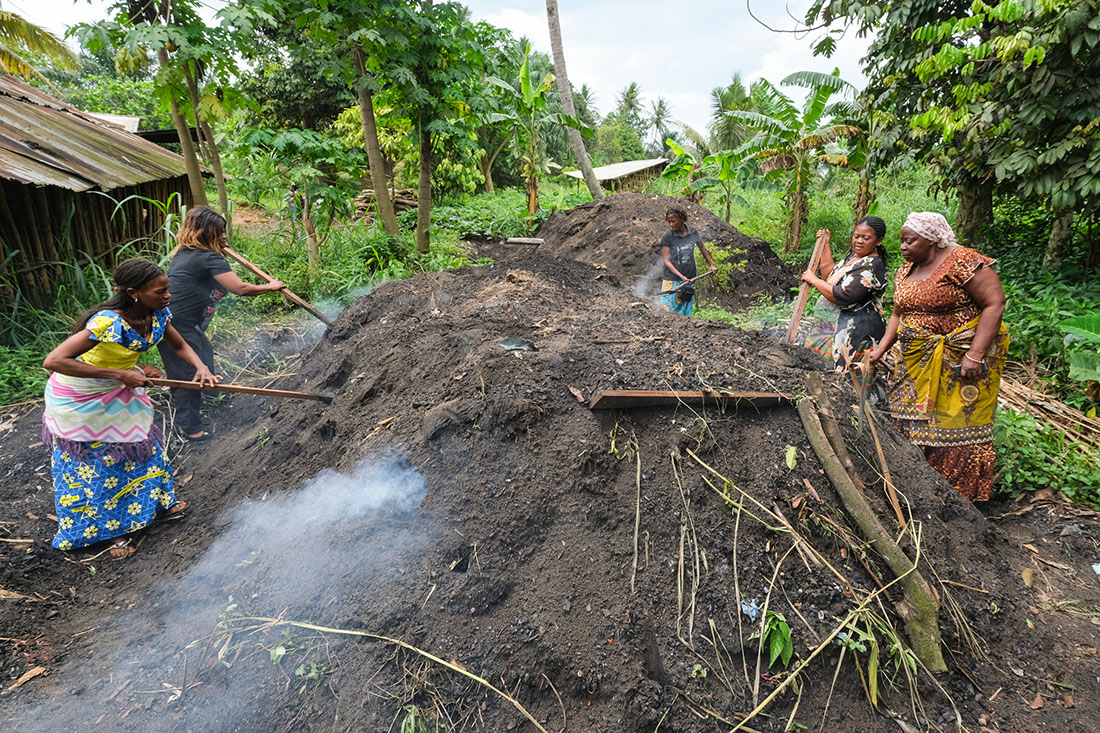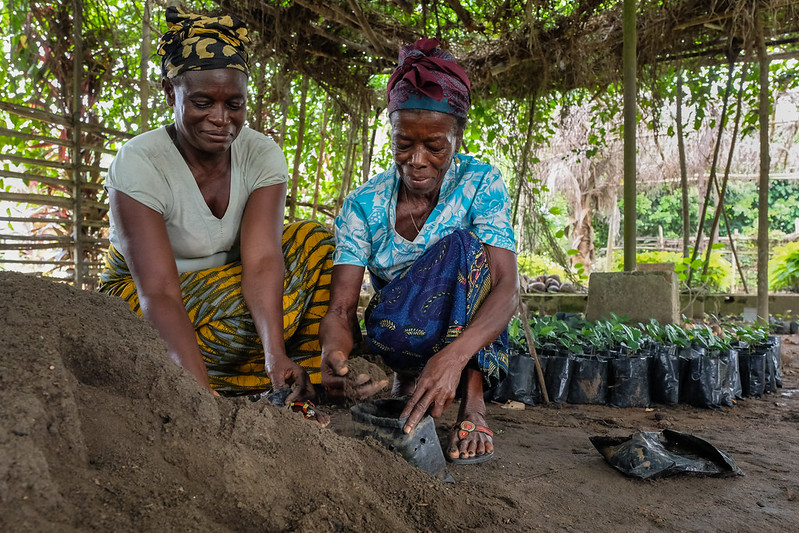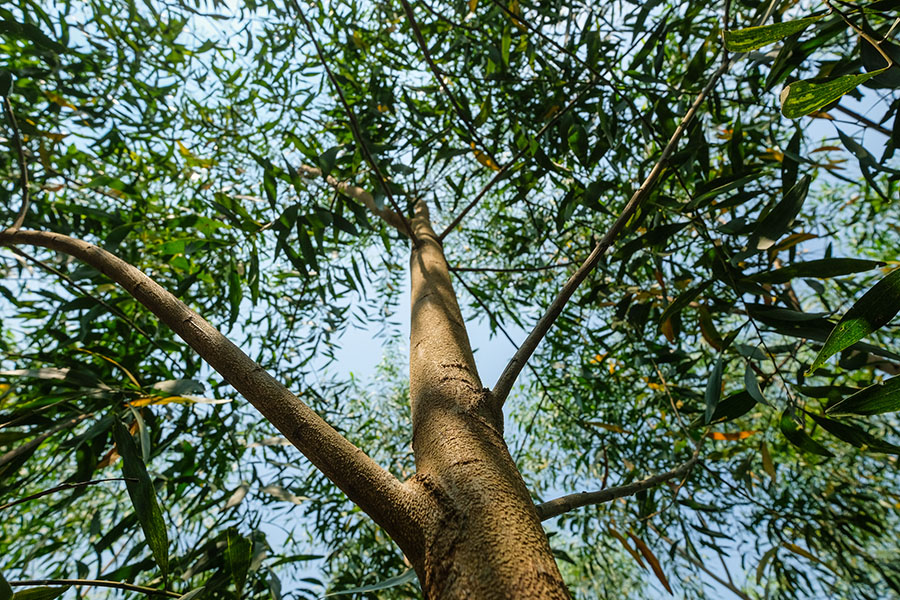Since 2007, CIFOR-ICRAF has been working in the Yangambi landscape to advance forestry research, local development and conservation. With offices based in Kisangani, Yangambi and Yanonge, CIFOR-ICRAF researchers have collaborated with partners in government, academia, communities and the private sector to build capacity in the forestry sector, inform national forest policies, and improve livelihoods for vulnerable households through agroforestry and support to the development of value-chains.
CIFOR-ICRAF has an ongoing EU-funded MSc and PhD programme in partnership with the University of Kisangani. As part of the activities conducted in the Yangambi landscape to inform local, provincial, and national policies, our work focuses on the development of legal and sustainable artisanal logging and domestic timber markets; on supporting the sustainable creation and development of community forests; on the promotion of multipurpose trees for nutrition and income through agroforestry schemes on private and customary land; promotion of sustainable wildlife management for nutrition and poverty alleviation; support of sustainable woodfuel value chains, from producers in rural areas to consumers in the major cities; support for landscape restoration to meet commitments under the AFR100 initiative; forests and climate change; and REDD+, including finance and benefit-sharing analysis and use of near-real-time alerts to analyse forest disturbance processes in peatlands.
COUNTRY FOCAL POINT
Key outcomes
- The Yangambi Engagement Landscape (YEL), a science, conservation and development hub in the heart of the Congo Basin, evolved out of long-term CIFOR-ICRAF engagement in Tshopo Province. Here, about 2 million trees have been planted and are currently managed by customary and private users as part of improved agroforestry schemes adopted on their land; more than 3,000 local jobs have been provided; and about 100 charcoal makers have become trainers of trainers in improved carbonisation techniques which have already doubled the average yields obtained in charcoal making in the landscape, sparing trees in primary forests.
- In 2005, only 6 people had postgraduate degrees in forestry in the entire country; in collaboration with local and international teachers, CIFOR-ICRAF and the University of Kisangani and partners have helped increase this number to over 220 postgraduates, many of them now scientists, university professors, and private sector and government officials.
- Groundbreaking research on wild meat in DRC contributed to key findings on the links between wild meat and zoonotic diseases like Ebola and to recommendations for a sustainable wild meat sector adopted by Parties to the Convention on Biological Diversity.
- Since 2010, Global Comparative Study on REDD+ work has generated evidence to support REDD+ policies and the refinement of National REDD+ Strategy Framework.
Partners
Latest updates
Publications
Videos
Presentations
Podcasts
News
Projects
Contact us
Paolo Cerutti
Senior Scientist, DRC Unit Head
University of Kisangani, Av. Kithima 04
Faculté des Sciences, Kisangani, DRC
Tel: +254 701 465 459 | +243 999 600 503
Email: P.Cerutti@cifor-icraf.org


















